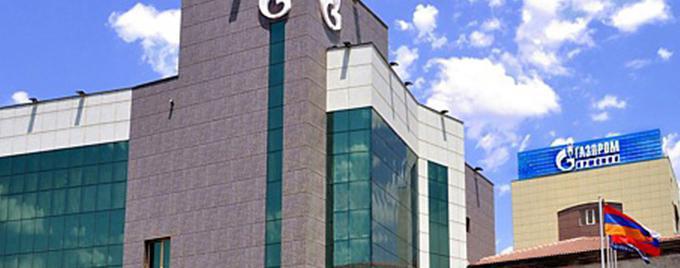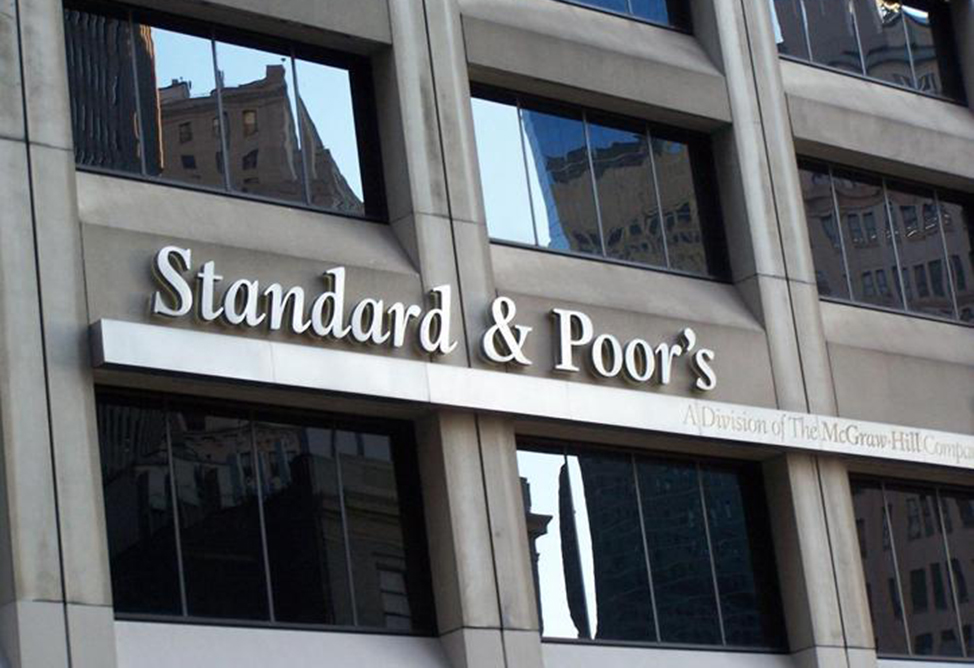Gazeta about gas war between Armenia and Gazprom
02.07.2019,
13:34
Armenia doesn’t want to pay for Russian natural gas as much as Gazprom offers and has already started hurling fines at the Russian subsidiary, Gazeta.ru reports. Experts are warning that the price is unlikely to be downed. In their opinion, it is extremely low now. According to Gazeta.ru, the confrontation may be settled when Vladimir Putin visits Armenia.

YEREVAN, July 2. /ARKA/. Armenia doesn’t want to pay for Russian natural gas as much as Gazprom offers and has already started hurling fines at the Russian subsidiary, Gazeta.ru reports. Experts are warning that the price is unlikely to be downed. In their opinion, it is extremely low now. According to Gazeta.ru, the confrontation may be settled when Vladimir Putin visits Armenia.
The Armenian authorities are seeking the price decrease and negotiating long months. However, all deadlines are already over, but no accord is reached. Indexation of gas prices in Russia gives grounds to the official Yerevan for turning to the issue again.
On January 1, 2019, Russia has already increased the price for Armenia from $150 to $165 per 1,000 cubic meters on the board. Despite that, the price for gas consumers inside the country remained unchanged at the account of Gazprom Armenia – the Russian Gazprom’s subsidiary has optimized its internal expenses by cutting some 500 to 1,000 jobs in its 13 branches and also reduced its investments.
It is not ruled out that Gazprom Armenia, the sole importer and distributor of the Russian natural gas in Armenia, will save no sufficient financial means by optimizing its expenses and will have no option but to apply for raising the price for Armenia’s population already this year.
Earlier, Garegin Baghramyan, the head of Armenia’s Public Services Regulatory Commission, said that admitting that Gazprom Armenjia has a legal right to act this way.
Theoretically it would be possible to leave the price unchanged, if the Armenian authorities subsidized the natural gas price for consumers, but, in fact, Armenian Prime Minister Nikol Pashinyan refused to do that in the beginning of this year. He thinks the matter can be settled otherwise – at the account of Russia’s Gazprom.
Pashinyan is quoted by Gazeta.ru as saying that the gas price for consumers will not be increased at least in 2019, and that Armenia has one year for negotiating with partners from Russia, Gazprom and the Eurasian Economic Union for finding a long-term solution to the problem.
Yerevan thinks that Russia and Armenia are in the same economic space, and therefore it is necessary to create equal conditions for Russian and Armenian business people, while now it is problematic, since the price per one cubic meter of gas for industrial consumers in Armenia is higher than in Russia, and this affects products’ prime costs and creates unhealthy competition in the Eurasian Union. This means that prices in the Eurasian Economic Union should be flattened, not increased.
Taking into account Moscow’s silence (at least nothing has been said publicly so far), the Armenian authorities have launched a counterattack.
In June, Gazprom Armenia was fined AMD 10 million (around $20,000) by Armenia’s Public Service Regulatory Commission for noncompliance with the rules of connection of local companies and residential houses to the gas network.
Gazprom Armenia’s authorities took it amiss and said in response that they have done nothing wrong and deserve no fines. The sum of the fine is not significant, but it is taken as a signal to Gazprom and Kremlin. What will happen next is not clear.
Gazeta. ru sent a requirement to Gazprom Armenia to be in touch with negotiations between the countries over the price and received the following official comment: “Comprehensive negotiations over the gas price, which are under way for long time, according to the information we posses, have already reached the final stage”.
The company promised to provide appropriate information upon completion of the negotiation.
But it would be wrong to expect a quick solution – the first results of the talks are thought to appear no earlier than in October, when Russian President Vladimir Putin’s visit to Armenia is scheduled.
Earlier, Armenian Prime Minister Nikol Pashinyan met with Putin as he traveled to St. Petersburg for an economic forum.
After the meeting, Pashinyan said he hopes to come to an understanding with Russia over the gas price for Armenia. Experts think otherwise – they noticed that Russia is not ready to make any concession.
“Armenia is already receiving gas at a quite competitive price, lower than the market price,” said Konstantin Simonov, CEO of the National Energy Security Fund. “Only Belarus receives gas at a lower price. This means this is the rock-bottom price.”
For example, Georgia purchases Azerbaijan’s gas at $200-2015, Turkey at $290, Iran sells its gas to Turkey at $300-400.
On the other side, gas prices always have not only a financial component – this is a matter of a global politics.
Experts say Russia takes advantage of having an instrument for influencing neighboring countries, even more or less loyal neighbors, such as Armenia and Belarus.
“The new Armenian leader, Pashinyan is on friendly terms with Russia, but he is not ready to march in lockstep with Kremlin,” Simonov said.
Alexey Makarkin, Vice President of the Center for Political Technologies, on his side, said grounds for discontents between countries always happen.
For example, Moscow is categorically unhappy about the detention of former president Robert Kocharyan. The present Armenian authorities accuse him of grabbing power, while it is considered that Armenia has taken a Russian ply under Kocharyan’s rule (1998 - 2008).
“Russia has levers to influence the current authorities of Armenia,” Makarking said. “And this is not only gas, but also security guarantees on Karabakh problem.” He thinks Armenia has a little chance to receive another preference on gas from Russia. -0---
The Armenian authorities are seeking the price decrease and negotiating long months. However, all deadlines are already over, but no accord is reached. Indexation of gas prices in Russia gives grounds to the official Yerevan for turning to the issue again.
On January 1, 2019, Russia has already increased the price for Armenia from $150 to $165 per 1,000 cubic meters on the board. Despite that, the price for gas consumers inside the country remained unchanged at the account of Gazprom Armenia – the Russian Gazprom’s subsidiary has optimized its internal expenses by cutting some 500 to 1,000 jobs in its 13 branches and also reduced its investments.
It is not ruled out that Gazprom Armenia, the sole importer and distributor of the Russian natural gas in Armenia, will save no sufficient financial means by optimizing its expenses and will have no option but to apply for raising the price for Armenia’s population already this year.
Earlier, Garegin Baghramyan, the head of Armenia’s Public Services Regulatory Commission, said that admitting that Gazprom Armenjia has a legal right to act this way.
Theoretically it would be possible to leave the price unchanged, if the Armenian authorities subsidized the natural gas price for consumers, but, in fact, Armenian Prime Minister Nikol Pashinyan refused to do that in the beginning of this year. He thinks the matter can be settled otherwise – at the account of Russia’s Gazprom.
Pashinyan is quoted by Gazeta.ru as saying that the gas price for consumers will not be increased at least in 2019, and that Armenia has one year for negotiating with partners from Russia, Gazprom and the Eurasian Economic Union for finding a long-term solution to the problem.
Yerevan thinks that Russia and Armenia are in the same economic space, and therefore it is necessary to create equal conditions for Russian and Armenian business people, while now it is problematic, since the price per one cubic meter of gas for industrial consumers in Armenia is higher than in Russia, and this affects products’ prime costs and creates unhealthy competition in the Eurasian Union. This means that prices in the Eurasian Economic Union should be flattened, not increased.
Taking into account Moscow’s silence (at least nothing has been said publicly so far), the Armenian authorities have launched a counterattack.
In June, Gazprom Armenia was fined AMD 10 million (around $20,000) by Armenia’s Public Service Regulatory Commission for noncompliance with the rules of connection of local companies and residential houses to the gas network.
Gazprom Armenia’s authorities took it amiss and said in response that they have done nothing wrong and deserve no fines. The sum of the fine is not significant, but it is taken as a signal to Gazprom and Kremlin. What will happen next is not clear.
Gazeta. ru sent a requirement to Gazprom Armenia to be in touch with negotiations between the countries over the price and received the following official comment: “Comprehensive negotiations over the gas price, which are under way for long time, according to the information we posses, have already reached the final stage”.
The company promised to provide appropriate information upon completion of the negotiation.
But it would be wrong to expect a quick solution – the first results of the talks are thought to appear no earlier than in October, when Russian President Vladimir Putin’s visit to Armenia is scheduled.
Earlier, Armenian Prime Minister Nikol Pashinyan met with Putin as he traveled to St. Petersburg for an economic forum.
After the meeting, Pashinyan said he hopes to come to an understanding with Russia over the gas price for Armenia. Experts think otherwise – they noticed that Russia is not ready to make any concession.
“Armenia is already receiving gas at a quite competitive price, lower than the market price,” said Konstantin Simonov, CEO of the National Energy Security Fund. “Only Belarus receives gas at a lower price. This means this is the rock-bottom price.”
For example, Georgia purchases Azerbaijan’s gas at $200-2015, Turkey at $290, Iran sells its gas to Turkey at $300-400.
On the other side, gas prices always have not only a financial component – this is a matter of a global politics.
Experts say Russia takes advantage of having an instrument for influencing neighboring countries, even more or less loyal neighbors, such as Armenia and Belarus.
“The new Armenian leader, Pashinyan is on friendly terms with Russia, but he is not ready to march in lockstep with Kremlin,” Simonov said.
Alexey Makarkin, Vice President of the Center for Political Technologies, on his side, said grounds for discontents between countries always happen.
For example, Moscow is categorically unhappy about the detention of former president Robert Kocharyan. The present Armenian authorities accuse him of grabbing power, while it is considered that Armenia has taken a Russian ply under Kocharyan’s rule (1998 - 2008).
“Russia has levers to influence the current authorities of Armenia,” Makarking said. “And this is not only gas, but also security guarantees on Karabakh problem.” He thinks Armenia has a little chance to receive another preference on gas from Russia. -0---



